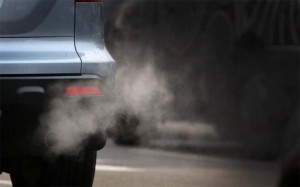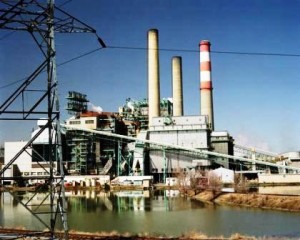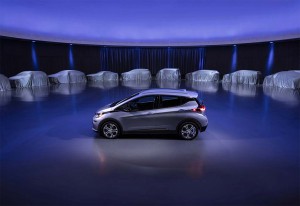
Even though automakers have been reducing emissions, transportation sources haven't kept up with gains by power plant generation.
They were once the symbol of American manufacturing might, though in recent decades industrial smokestacks – and power plants, in particular – have come to represent a major problem as the single largest source of greenhouse gas emissions.
But that has seen a radical shift. For the first time in 40 years, power plants are no longer the single-largest source of global warming gases. That dubious honor now goes to the transportation sector, according to data compiled by the U.S. Energy Information Administration.
That includes a broad mix of different sources within the transport sector, reports Bloomberg News, which analyzed the EIA data, including automobiles and trucks, as well as aircraft, trains and boats.
In fact, the transport sector has actually been cleaning up its act in the face of tough new emissions regulations. The auto industry, in particular, has slashed emissions by pushing out new, higher mileage vehicles and, most recently, zero-emissions products.
(VW investing over $40B on EVs, autonomous vehicles. Click Here for the story.)

Some of U.S. electricity generation comes from coal, which emits enormous quantities of greenhouse gases.
But electric generation has also gone through some dramatic changes, notably as it shifts away from coal, the dirtiest of fuels, in favor of natural gas and renewables. Coal-generated power has gone down by a third during the last decade, the EIA reported, even as the use of wind and solar power has been on a rapid rise. Renewables, in general, accounted for 15% of U.S. electric generation in 2016, said the EIA, with nuclear power generating about 20%.
That helped greenhouse gas emissions from energy generation drop below that of transportation sources last year for the first time since 1978, and Bloomberg reports the gap has continued to widen this year.
Whether that gap will continue to grow is unclear, however, as the Trump Administration has promised to put more emphasis on the use of so-called “clean” coal. The White House is also studying whether to roll back the 54.5 mpg Corporate Average Fuel Economy standards phasing in between now and 2025, however, a move that could curtail anticipated reductions in passenger vehicle pollutants.
(Click Here for more about EU plans for big CO2 emissions cuts.)
The U.S. Environmental Protection Agency is also rolling back Obama-era rules covering truck emissions and other transportation sources of greenhouse gases and other pollutants.
Critics contend such moves could lead to dire consequences on several fronts. For one thing, that could increase the production of global warming pollutants by the transportation sector, or at least slow the rate at which such emissions were expected to decline. Separately, that will have an impact on efforts to reduce other pollutants, such as smog-causing oxides of nitrogen, linked to such things as asthma, cancer and heart disease.
But while automakers have been calling for a rollback of the CAFE mileage standards most contend they will continue moving forward with the introduction of cleaner technologies, especially electrified vehicles. In recent months, manufacturers ranging from General Motors to Toyota to Volkswagen have announced plans to spend tens of billions of dollars developing alternative powertrain technologies. VW, for example, plans to launch 50 all-electric models by 2025.
The Boston Consulting Group recently forecast that half the vehicles sold in the U.S. by 2030 will rely on some form of electrification, from hybrids to pure electric propulsion. Battery-electric models alone, said BCG, will account for about 20% of the new vehicle market.
(For more on the new BCG electrification study, Click Here.)
But barring any major reversal in strategy under the auspices of the Trump Administration, power plant operators are also expected to continue shifting to cleaner fuels, notably natural gas and renewables.

